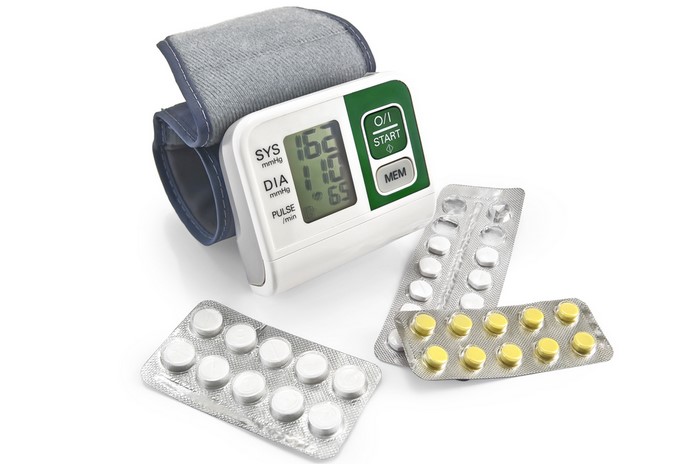How is High Blood Pressure Treated?

There are various factors that can help your doctor recommend the best treatment option for you regarding the type and intensity of hypertension you have. Secondary hypertension, that develops due to some other health conditions, may require double treatment, i.e., for hypertension as well as the underlying condition itself that is causing your blood pressure to rise. Depending on the type of hypertension you are suffering from, various treatment options include;
Treatment Options for Primary Hypertension
If you have been diagnosed with primary hypertension, your doctor may recommend certain diet restrictions and lifestyle modifications to help lower your high blood pressure. The mainstay of treatment in primary hypertension is minimizing the risk factors such as restriction of a diet rich in salt and fats, smoking and alcohol cessation, ways to reduce stress, and exercise to drop extra pounds. If lifestyle modifications alone are not so effective, the next step will be the start of blood pressure lowering drugs.
Treatment Options for Secondary Hypertension
As secondary hypertension is due to some other underlying health condition, its treatment does not only rely upon reducing risk factors and treating high blood pressure. It also requires proper treatment of the underlying condition causing hypertension. For example, if you are taking medicine that is causing increased blood pressure as its side effect, your doctor will likely recommend you to stop taking this as soon as possible.
Dietary restrictions and lifestyle modifications also play an important role in treating secondary hypertension. Treatment plans may often evolve gradually because what worked during the initial stages of the disease may become less effective over time.
Medications for Hypertension
If Lifestyle changes do not work, the first step your doctor will recommend is to start medications for Hypertension. a majority of people go through trial and error phase, i.e., you may need to try different drugs or combination of medicines until You find one that is safe and effective for you. Some common blood pressure lowering drugs used to treat hypertension include;
- Beta-blockers – These medicine block the B-blockers on the heart and reduce the heart rate. Common B-blockers includes Atenolol (Tenormin), Acebutolol (Sectral), Metoprolol (Lopressor, Toprol-XL) and Bisoprolol (Zebeta).
- Diuretics – There is a wide variety of the diuretics available. Depending on the type and severity of the disease your doctor may recommend one of them. The common diuretics used to treat hypertension are chlorthalidone (Hygroton), Hydrochlorothiazide or HCTZ (Esidrix, Hydrodiuril, Microzide) and Chlorothiazide (Diuril).
- ACE inhibitors – These medicines inhinit ACE enzyme and reduce blood pressure. These include Benazepril (Lotensin), Enalapril (Vasotec) and Lisinopril (Prinivil, Zestril)
- Angiotensin II receptor blockers (ARBs) – As their name suggest, they block angiotensin receptor on the blood vessles and cause vesodialatation, that will lead to reduction of the blood pressure. Common Angiotensin blockers include azilsartan (Edarbi) Candesartan, Irbesartan (Avapro) and (Atacand) Eprosartan
- Calcium channel blockers – Block calcium channles to reduce the contractility of the heart. Common calcium channel blcokers include Amlodipine (Norvasc) and Diltiazem (Cardizem, Tiazac, others)
Surgical Options to Treat Hypertension
There are no surgical options required to treat high blood pressure; however, if chronic high blood pressure results in certain life-threatening health complications, you may need surgical intervention to treat these conditions. The surgical treatment options come in when both lifestyle changes and medicines failed to treat hypertension.
The most common complication of hypertension that requires surgical intervention is a heart attack. Depending on the area of the heart involved and the severity of the heart attack, your doctor may recommend angioplasty, stunting or open heart surgery to treat the condition.
